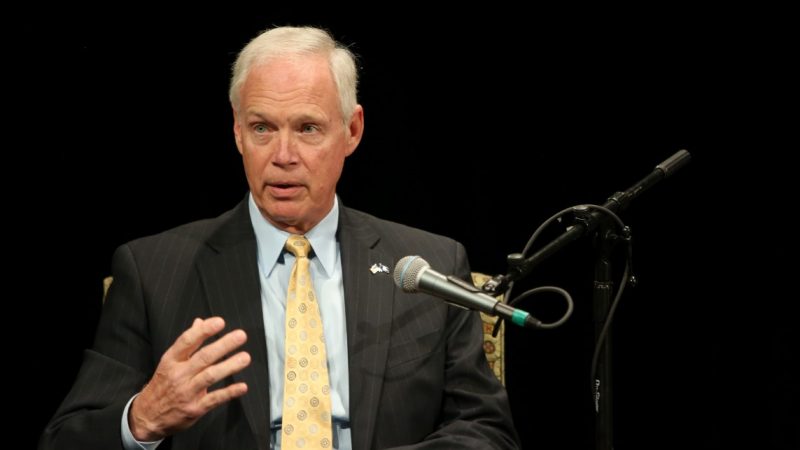U.S. Sen. Ron Johnson, who four years ago called Supreme Court nominations in an election year “problematic,” said Saturday he favors filling the vacancy left by the death of liberal Justice Ruth Bader Ginsburg.
Meanwhile, U.S. Sen. Tammy Baldwin, who pushed for a vote on Merrick Garland’s nomination to the court in 2016, says the Senate should follow the standard Senate Majority Leader Mitch McConnell, R-Ky., imposed four years ago of not filling a vacancy in an election year.
Johnson, R-Oshkosh, told WisPolitics.com Saturday afternoon he would back filling the vacancy even in a scenario where it was a vote during a lame-duck session after President Trump lost reelection and Dems had taken control of the Senate.
McConnell has committed to a vote, but hasn’t said when.
>> WisPolitics is now on the State Affairs network. Get custom keyword notifications, bill tracking and all WisPolitics content. Get the app or access via desktop.
“President Trump was elected for a term that runs into January. Republicans have control of the Senate until the end of this Congress. We should fulfill that constitutional duty,” Johnson said in a phone interview.
In various interviews four years ago, Johnson called a Supreme Court nomination in an election year problematic. He also said presidents should avoid even trying to make a nomination in an election year because of the politicized environment. With Republicans refusing to hold a floor vote on then-President Obama’s nomination of Merrick Garland to the court, Johnson argued voters should be allowed to weigh in first.
Johnson said the situation is different now with Republicans in control of both the White House and the Senate as opposed to 2016, when there was split control. He pointed to a story in the conservative National Review that showed between 1796 and 1968 17 of the 19 nominations made in an election year were confirmed when the Senate and White House were controlled by the same party. One of those was withdrawn for technical reasons and confirmed after the new Congress convened, according to the article.
“That’s the norm. That’s the precedent,” Johnson said. “President Trump has indicated he’s going to nominate someone. Leader McConnell has indicated he’ll give that nominee a vote, and I’m very supportive of that.”
State Dem Chair Ben Wikler accused Johnson of betraying “his own stated principle” from 2016 of wanting for the next president and Senate to choose the nominee.
“If Ron Johnson shatters the trust of his constituents by voting for a nominee before the next Senate is seated, he will cement his legacy as a disgrace to Wisconsin and demonstrate to voters that he is unworthy of public office,” Wikler said.
In March 2016, Baldwin said ignoring Garland’s nomination would be “wrong and irresponsible.” On Saturday, she noted the standard Republicans used when then-President Obama sought to fill the seat following the death of conservative Justice Antonin Scalia, who passed away in February 2016. Baldwin pointed out the election is only 45 days away.
“It’s not only an election year. We are weeks away from an election for President and control of the Senate, and people are voting right now,” Baldwin said. “After the voters have spoken in the election, and the elected President and new Senate have taken office, we can then move forward on a Supreme Court nomination.”



